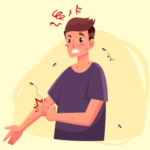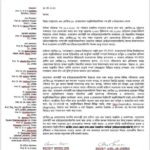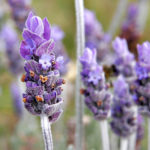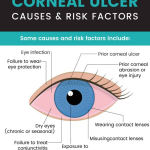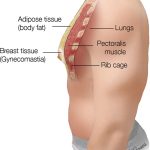Dengue fever has emerged as a deadly disease, and the situation is expected to worsen in the coming days. Relying solely on City Corporations is not the solution. However, we can take action against dengue by being informed and prepared. In this article, we will cover essential information about dengue and its symptoms, testing, treatment, misconceptions, and precautions.
Dengue Symptoms and Tests: The Importance of Consulting a Doctor
Today, dengue may not exhibit many typical symptoms. If someone experiences fever on the first day (within 24 hours), they should undergo a Dengue NS-1 test. Additionally, a Complete Blood Count (CBC) test should be done to check platelet count and other blood parameters. It’s crucial to conduct the NS-1 test at night if the fever occurs in the morning, as delaying the test may affect its accuracy. After 4-5 days, an IGM test should also be conducted.
If fever is accompanied by other issues like vomiting, diarrhea, or chest pain, seeking medical attention is essential, as fever can have various causes. Relying solely on a self-administered dengue test and getting a negative result may lead to overlooking other potential health risks.
When visiting a doctor for fever, they will likely perform a dengue test and examine other aspects such as blood pressure, tongue, and eyes. Depending on symptoms, the doctor may recommend additional tests to rule out underlying conditions like jaundice, infections, or complications.
Preparation Before and After Dengue Test Results
Before receiving the test results, certain preparations are prudent:
- Know the patient’s blood group.
- List potential blood or platelet donors for the future.
- Decide on the hospital for admission, considering the availability of platelet transfusion facilities and associated costs.
- Keep in mind that reputable private hospitals may require an initial deposit for admission.
If the test result is positive, it is crucial not to panic or show excessive worry in front of the patient, as such reactions can negatively impact their immune system. Instead, maintain a positive and supportive atmosphere around the patient.
Dietary Recommendations for Dengue Patients
For dengue patients, consuming an adequate amount of liquids is crucial. Here are some dietary guidelines:
Liquids:
- Pure water is the best option, encourage frequent sips.
- Canned water is acceptable, but in moderation for patients with blood pressure issues.
- Consult a doctor before administering saline.
- Homemade chicken or egg soup is suitable, ensure store-bought soups are low in salt.
- Currant, pomegranate, and anar (pomegranate) are excellent fruit choices. Eating them directly is preferable, but fruit juices can be given if desired.
- Avoid store-bought mango juices or juices from unknown sources.
- Juicy fruits like pear can be consumed.
Foods to Avoid:
- Avoid Coke, Pepsi, or sugar syrups as they can lead to dehydration due to increased fluid requirements.
- Say no to tea and coffee due to their caffeine content, which can also cause water loss.
- While papaya leaf juice has shown to increase platelet count, consult a doctor before administering it, as proper dosage is essential.
Misconceptions about Dengue
Several misconceptions about dengue need clarification:
- Dengue is not contagious through touch, shared utensils, or the air. It spreads only if an infected mosquito bites another person.
- While dengue can occur again, it usually involves a different type of dengue virus. Having the same type twice is rare.
- The danger of dengue does not subside with the fever; it may lead to bleeding or platelet depletion complications after the fever subsides. Continued monitoring of the patient’s condition is necessary.
Managing Dengue with Diabetes
- For diabetic patients with dengue, it’s essential to control blood sugar levels. Avoid feeding sweet fruits or juices and opt for sour fruits like malta juice without added sugar. Maintaining proper hydration is crucial.
- Diabetic medications should be continued as advised by doctors. If insulin is prescribed, sudden discontinuation can lead to problems. Careful management of sugar levels is necessary to prevent complications and aid in the healing process.
Frequently Asked Questions (FAQs) about Dengue
- How long does it take to recover from dengue? Symptoms of dengue typically last 2-5 days, and complete recovery may take up to 10 days. Monitoring the patient’s condition after fever subsides is essential. Dengue fever often resolves on its own, and the patient’s appetite should return to normal.
- How often should platelet tests be done during dengue? Doctors usually conduct platelet counts once a day, and treatment is adjusted based on the results. Healthy bone marrow produces hundreds of thousands of platelets daily, and the platelets’ lifespan is about 10 days.
- Are there any antibiotics for dengue? Dengue is a viral disease and, therefore, does not respond to antibiotics.
- Is there a dengue vaccine? While a dengue vaccine was developed, its administration was limited to children who had previously had dengue. Due to complications, the vaccine was discontinued. Research on a new vaccine is underway in India, considering the four types of dengue.
- What does the Dengue NS-1 test mean? The Dengue NS-1 test detects a non-structural protein present in the blood during dengue infection.
- What is the Dengue Igm Test? The Dengue Igm Test is an antibody test. A positive result for IgM indicates a recent dengue infection, while positive IgG indicates a past infection.
- Is dengue fatal on the second occurrence? A second bout of dengue can lead to severe complications and can be life-threatening due to the body’s immune response.
- What precautions should be taken for dengue patients? Hemorrhagic dengue requires close monitoring. Activities that may cause bleeding should be avoided. Adequate rest is essential, and unnecessary travel should be avoided.
- Are there homeopathic medicines for dengue? While homeopathy claims to have treatments for all diseases, it is best not to pursue any other treatment except paracetamol for dengue, especially in mild cases.
- Can dengue patients be treated at home? The treatment location depends on the patient’s condition. If there are no severe symptoms and the patient can eat comfortably, home treatment may be suitable. However, admission is necessary for patients with complications or comorbidities.


